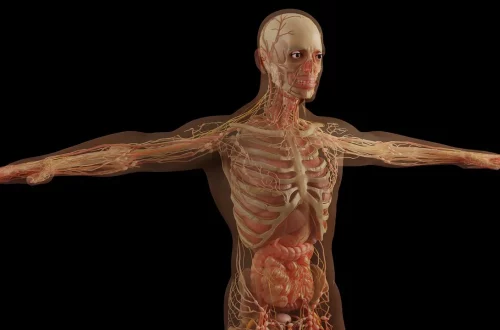
Understanding the Life Span of a Horse: Factors and Insights
Understanding the intricate dynamics of a horse’s life span is essential for horse owners, breeders, and enthusiasts alike. Horses are magnificent creatures, known for their grace, strength, and intelligence. However, like all living beings, they have a finite life span that can be influenced by a multitude of factors. Understanding these factors not only aids in providing the best care for these animals but also enriches the bond between humans and horses.
The average life expectancy of a horse can range significantly depending on various elements, including genetics, nutrition, environment, and healthcare. In the equine world, age is more than just a number; it reflects the horse’s health, productivity, and overall quality of life. Factors that can enhance or shorten a horse’s life span are often interlinked and can vary widely among different breeds and individual animals.
As we delve deeper into the various influences affecting the longevity of horses, we can better appreciate these noble animals and ensure they lead fulfilling lives. The following sections will explore critical aspects such as genetics, nutrition, and health care, all of which play a major role in determining how long a horse can thrive.
Genetics and Breed Differences
The genetic background of a horse significantly influences its life span. Different breeds come with their unique genetic predispositions that can affect longevity. For instance, some breeds are known for their hardiness and longer life spans, while others may be predisposed to specific health issues that can curtail their lives.
Breeds such as the Arabian horse are often cited as having longer life expectancies, sometimes living into their 30s. This longevity can be attributed to their robust genetics and adaptability. In contrast, certain breeds may succumb to genetic disorders that can severely impact their quality of life and longevity. For example, some Thoroughbreds may face issues related to musculoskeletal health due to their breeding for speed and performance.
Moreover, the role of selective breeding cannot be understated. Horses that are bred for specific traits, such as speed or strength, may inherit health issues that shorten their lives. This underscores the importance of responsible breeding practices, focusing not only on performance but also on the overall health and longevity of the horse.
Furthermore, genetic testing has become a valuable tool for horse owners and breeders. By understanding the genetic predispositions of a horse, owners can take preventive measures to mitigate potential health issues. This includes tailored nutritional plans, exercise regimens, and regular veterinary check-ups to monitor any emerging health concerns.
In summary, genetics play a crucial role in determining a horse’s life span. Through responsible breeding practices and an understanding of genetic predispositions, horse owners can enhance the chances of a longer, healthier life for their equine companions.
The Importance of Nutrition
Proper nutrition is fundamental to the health and longevity of horses. A well-balanced diet tailored to the specific needs of a horse can significantly impact its overall well-being and life span. Horses are herbivores, and their diet primarily consists of forage, grains, and supplements. Each element plays a unique role in ensuring optimal health.
Forage, such as hay and pasture grass, is essential for a horse’s digestive system. It provides the necessary fiber that aids in digestion and helps prevent conditions like colic and laminitis. The quality of forage is critical; nutrient-rich hay can enhance a horse’s health, while poor-quality hay can lead to various health issues that may shorten life span.
Grains, on the other hand, are often used to supplement a horse’s diet, especially for those engaged in strenuous activities or for breeding stock. However, it is essential to monitor grain intake closely, as overfeeding can lead to obesity and associated health problems, including metabolic disorders.
Additionally, vitamins and minerals are crucial for maintaining a horse’s health. Deficiencies in essential nutrients can lead to a weakened immune system, making horses more susceptible to diseases and health complications. Regularly consulting with a veterinarian or equine nutritionist can help in formulating a diet that meets the specific needs of the horse throughout its life stages.
Hydration is another critical aspect of nutrition that is often overlooked. Horses require access to clean, fresh water at all times. Dehydration can lead to severe health issues and negatively impact a horse’s longevity.
In conclusion, providing a balanced and nutritious diet is vital for the longevity of horses. By prioritizing their nutritional needs and monitoring their dietary intake, horse owners can significantly enhance their equine companions’ health and quality of life.
Healthcare and Preventive Measures
Healthcare is a fundamental aspect of ensuring the longevity of horses. Regular veterinary care, vaccinations, and preventive measures play a significant role in keeping horses healthy and extending their life spans. Establishing a solid relationship with a veterinarian is crucial for any horse owner. Regular check-ups can help identify health issues early, allowing for prompt treatment.
Vaccinations are essential in protecting horses from various diseases that can have severe implications on their health and life expectancy. Core vaccines, such as those for tetanus, rabies, and equine influenza, are vital for all horses. Additionally, depending on the horse’s lifestyle and environment, other vaccinations may be necessary to protect against specific diseases.
Dental care is another critical component of horse healthcare. Horses require regular dental check-ups to ensure their teeth are in good condition. Dental issues can lead to pain, difficulty eating, and overall health decline, which can significantly impact a horse’s longevity.
Moreover, regular hoof care is vital. Horses’ hooves are their foundation, and neglecting hoof care can lead to serious problems, including lameness and infections. Routine trimming and shoeing, as needed, can help maintain hoof health and prevent complications.
Preventive measures also encompass appropriate exercise and mental stimulation. Regular physical activity is essential for maintaining a horse’s physical health and mental well-being. Horses that are physically active are less prone to obesity and related health issues.
In summary, a comprehensive healthcare plan that includes regular veterinary visits, vaccinations, dental care, and preventive measures is essential for ensuring the health and longevity of horses. By investing in their healthcare, owners can help their horses live longer, healthier lives.
Environmental Factors and Their Impact
The environment in which a horse lives can have a profound effect on its health and life span. Factors such as shelter, pasture quality, and social interactions all play a role in the well-being of a horse.
Providing adequate shelter is crucial, as horses are susceptible to extreme weather conditions. A well-constructed barn or three-sided shelter can protect horses from harsh winds, rain, and excessive heat. Additionally, providing a clean and dry living environment helps prevent health issues related to mud and dampness, such as skin infections or respiratory problems.
Pasture quality is another significant factor. Access to clean, lush pasture not only provides essential nutrients but also encourages natural foraging behavior, which is beneficial for their mental health. Conversely, overgrazed or contaminated pastures can lead to health complications, including parasitic infections or laminitis.
Social interactions are equally important for a horse’s emotional well-being. Horses are herd animals and thrive on companionship. Isolating a horse can lead to stress, anxiety, and behavioral issues, which can negatively impact their health and longevity. Ensuring that horses have companionship, whether from other horses or compatible animals, can enhance their quality of life.
In addition to these factors, the location of the horse’s living environment can also influence its life span. Areas with high pollution levels or increased exposure to toxins can pose health risks. It is essential for horse owners to assess their environment and make necessary adjustments to promote the well-being of their horses.
In conclusion, environmental factors play a crucial role in the overall health and longevity of horses. By providing proper shelter, quality pasture, and social interactions, horse owners can significantly enhance their equine companions’ quality of life and longevity.
In summary, understanding the life span of a horse involves considering a multitude of factors, including genetics, nutrition, healthcare, and environmental influences. Each of these components contributes to the overall health and well-being of horses, ultimately affecting their longevity. By prioritizing these aspects, horse owners can ensure their equine companions lead fulfilling and healthy lives.
**Disclaimer:** This article is meant for informational purposes only and should not be considered medical advice. Always consult a veterinarian for any health-related issues concerning your horse.




